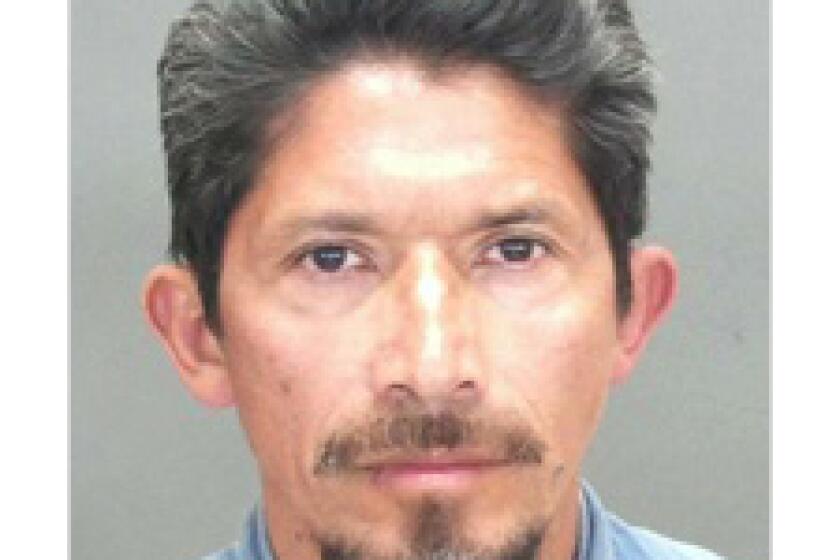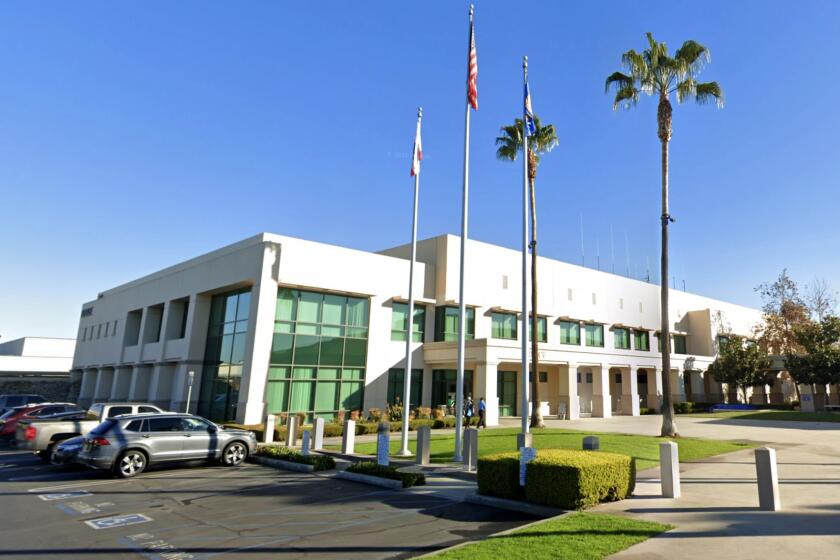California’s funding mechanism is fundamentally cockeyed
SACRAMENTO—San Bernardino, Stockton and Mammoth Lakes all screwed up and became bankrupt. But the rest of us shouldn’t get sanctimonious.
For starters, the federal government under President George W. Bush really screwed up by fighting two long wars while cutting taxes. That sort of fiscal management is guaranteed to run up a huge national debt.
The state government in Sacramento — under Democratic and Republican governors — cut taxes and increased spending. Same outcome: a colossal deficit.
Governments failed to follow the principle that families adhere to every day: Spend no more than you take in. Now there’s a real myth.
Leaving aside record credit-card debt, many families stretched for home loans betting that the good times would continue to roll. They lost their jobs and then their homes. Housing prices tumbled.
And, of course, many businesses folded.
All these private-sector failures resulted in revenue cutbacks for state and local governments. Bingo: bankruptcies.
It was a nasty epidemic of common human imperfection and denial.
Screw-ups all around by clueless local elected officials and their highly compensated hires, selfish labor unions and oblivious, inattentive citizens.
Not to mention some serious corruption here and there.
Public pensions are a problem — but not the main problem.
The root cause of local governments’ financial plights in California is systemic. Funding arrangements between Sacramento and cities, counties and schools are unworkable and cockeyed. More on that later.
The immediate cause of these governments’ problems, of course, is the global recession.
Things could get worse before they get better. Eight other California cities have disclosed to potential bond buyers that they’re in serious trouble, according to the state Treasurer’s office: Fairfield, Arvin, El Monte, Grover Beach, Lancaster, Monrovia, Riverbank and Tehachapi. Compton is also on the brink.
The news out of Washington has been particularly bleak this week: Federal Reserve Chairman Ben S. Bernanke announced that the economy was losing momentum. Moreover, a task force of budget experts predicted that the fiscal crisis for states would persist long after the economy recovers.
So let’s not be too smug about the cities flirting with bankruptcy. They’re vulnerable to all the falling financial crud that threatens to bury them.
If there’s any magic cure, nobody in Sacramento seems to have discovered it.
State Controller John Chiang is pushing a modest legislative package of preventive medicine to try to head off future bankruptcies. It also could act as an early warning system.
Basically, the legislation would strengthen accounting and auditing procedures for local governments and expand the state controller’s power to investigate suspicious practices.
One of the authors, Assemblyman Ricardo Lara (D-Bell Gardens), says “all you have to do is turn to any local paper and read about the mismanagement of funds by some local governments” to see the need for the legislation.
That brings up another problem: The demise of small local newspapers that used to look over the shoulders of government officials and shine a light on their misadventures.
But the big culprit in California, Chiang and many experts contend, is our awkward, outdated system of state and local government financing. It began — I’m ready for the screams — with implementation of Proposition 13 a long time ago, 34 years.
No, it’s not all Prop. 13’s fault. But the property tax-cutting initiative started California down the dangerous path of lost local control and lack of accountability for spending revenue raised in the community. More power over local taxes flowed to state government in a convoluted system few could comprehend.
“When it’s difficult to understand how the process works, it’s unhealthy for democracy,” Chiang says.
“How many people in California can explain the triple flip?” he adds, referring to a tax shuffling trick.
Can Chiang? “I could explain it up until a few years ago until they made the latest change.”
That would be the single flip.
For those really curious, the triple flip involves a shell game with the sales and property taxes aimed at guaranteeing a state bond repayment. Any further explanation would induce dizziness.
Chiang believes the inexplicable state-local financial snarl has tied many cities in knots, leading to bankruptcies.
“It has been very clear that state government has been an unreliable partner to city government,” the Democrat says. “We need to change the relationship…
“And if we’re going to fix California, we’re going to have to fix the revenue structure…. We’ve gone astray from how the property tax historically had been used: to pay for local activity, such as education.”
After Prop. 13, the state Capitol became a big mixing bowl for the property tax.
“We need leadership — from the governor and the legislative leaders,” he says. “We need to bring everyone to the table. Discuss what California needs to look like to be globally competitive in the 21st century. We have a tax system created for the first half of the 20th century.”
Like many, Chiang advocates dropping the sales tax rate and extending it to services. Allow local governments more power to raise their own taxes and spend them as they wish. Sacramento needs a rainy day fund to horde surpluses when they materialize again.
But nobody’s seriously talking about these things.
So neither has Chiang endorsed Brown’s proposed tax increase, although it’s inconceivable that he won’t ultimately. “I’d have liked to have seen some reform first,” he says.
The cure for local bankruptcies — for all of California government — is major surgery on our tax and financing systems. That would require intellectual honesty and political courage.
More to Read
Start your day right
Sign up for Essential California for news, features and recommendations from the L.A. Times and beyond in your inbox six days a week.
You may occasionally receive promotional content from the Los Angeles Times.






